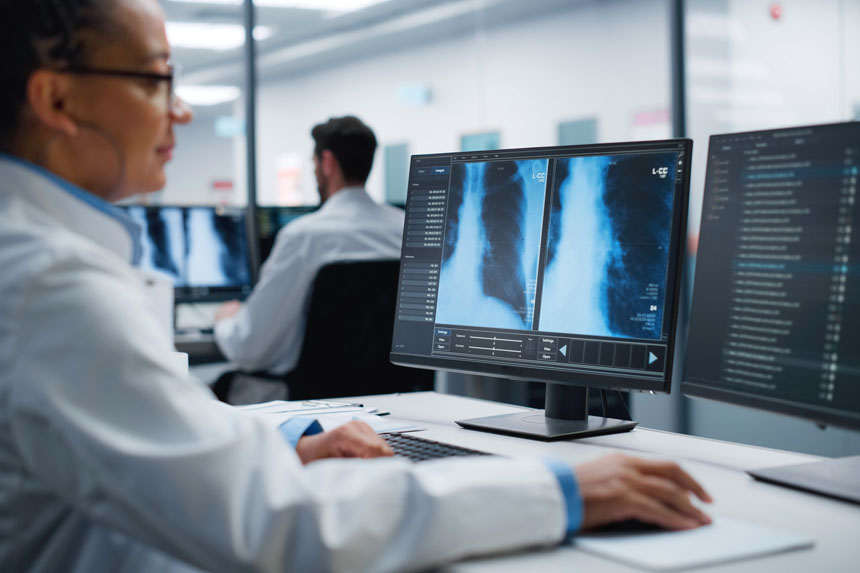When it comes to finding success as a medical device company in the fiercely competitive healthcare market, physicians are vital.
Physicians can drastically impact the success of your medical device sales strategy—the key is knowing when and how to approach them.
In this blog, we’ll dive into why physicians are so important to your commercialization strategy. We’ll also explore three ways healthcare commercial intelligence can help you identify the most valuable physicians to market your medical device to.
How can physicians help medical devices succeed?
Physicians can be both consultants and customers. Physicians, arguably, know better than anyone what works for patients, what patients want, and what devices their colleagues will and won’t use. They may also be more clued into areas across the hospital where needs are unmet.
The most successful medical device companies know that physicians play an important role in creating and commercializing their products. To name just a few ways physicians help, they can offer early input at the product development phase, contribute to clinical trial design and execution, and help educate other physicians after your device hits the market.
While companies must also consider how their device can meet the needs of their stakeholders, success hinges on whether the product has a positive health outcome for the patient and meets the needs of the clinicians who use it.
Three ways medical device companies can find physicians using healthcare commercial intelligence
With how often the healthcare landscape changes, the importance of healthcare commercial intelligence to a company’s success remains constant.
Data from patient outcomes, clinical trials, and real-world usage can help refine and improve a medical device’s development. Meanwhile, monitoring market trends, demographic data, and physician behavior can help your company comprehensively understand the market and answer any critical business questions you have.
So, how do you best find and engage with physicians in your market? And, more importantly, how do you identify the physicians who will be most valuable and impactful to the success of your medical device?
The answer is healthcare commercial intelligence. Below are three ways your company can leverage this sort of data to reach the right physicians.
- Medical and prescription claims data
- Affiliations and referrals
- Key opinion leaders and clinical trial participants
Medical and prescription claims data
Claims data contains a veritable treasure trove of information your company can use to understand the market and your patients better, create more meaningful sales territories, craft a compelling value proposition, and so much more.
Medical and prescription claims data includes details about diagnoses, procedures, costs, and more. Your sales team can use a combination of ICD, HCPCS, and CPT codes to pinpoint specific patient populations, find where these patients are located geographically, and find the physicians providing these services.
Comorbidity information is also useful when strategizing and building value propositions. For example, according to info from the Atlas Dataset, about 1.5 million diabetes patients are diagnosed with hyperlipidemia in a given year. If your implantable device tracks the fat levels in patients’ blood, you could save patients and payors money by flagging potential issues before they become dangerous.
Affiliations and referrals
Medical and prescription claims data should not be your sole focus— physician referral patterns and affiliations are equally important when crafting a sales strategy.
Healthcare reference and affiliation data contain information from across the industry, including firmographic, geographic, and financial data on hospitals and health facilities and demographic, contact, and quality metrics on healthcare providers.
If multiple physicians in one region or across regions refer patients to the same specialist, that clinician could be your first contact and, more importantly, an influencer within their organization.
Additionally, your team should note whether patients are being referred to physicians in-network or out-of-network. In-network referrals indicate that CMS payments and reimbursements are staying within one system, and there is a higher likelihood that patients will receive proper care coordination and adhere to treatment regimens. Out-of-network referrals can increase the odds of patient leakage, revenue loss, and ineffective treatments.
For a deeper dive into affiliations and reference data, including tips on how other teams across your organization can use this information, check out our e-book ‘How to use healthcare reference and affiliation data to grow your business.’
Key opinion leaders and clinical trial participants
Key opinion leaders (KOLs) are experienced healthcare professionals, often physicians, who can offer specialized insights on your go-to-market strategy and your device's applications.
They’re your foot in the door—the providers whose trust you want to gain first and who should be the first to buy in that your device helps solve their unique pain points. Having an ally during the sales process can vastly improve your chances of success with decision-makers later.
Finding KOLs can sometimes be slow and time-consuming. Here are a few ways you can search for key opinion leaders:
- Attend events, conferences, and webinars related to your therapy area
- Follow podcasts where KOLs who address relevant issues are featured as guest speakers
- Join online communities and use social media to monitor the engagement and following of notable KOLs
- Search online databases to review publications, citations, clinical trials, and more.
With so many different ways to search for influencers related to your therapy area, it can be easy to stretch your teams thin. Monocl ExpertInsight can help your organization access up-to-date, reliable intelligence on more than 15 million thought leaders, and has powerful features that make finding KOLs (and tracking their activities) a breeze.
Optimize your medical device sales strategy
Physicians are incredibly important to the success of your medical device—from development to commercialization to post-market.
But there are plenty more metrics and tactics to consider as you formulate your medical device sales strategy.
Watch our medical device strategy webinar for a step-by-step approach to developing a proven marketing and sales plan. And you can read our blog for more tips and tricks for selling medical devices to hospitals and IDNs.
Interested in getting hands-on with our healthcare commercial intelligence? Start a free trial today to see how we can help your medical device company achieve its goals.





